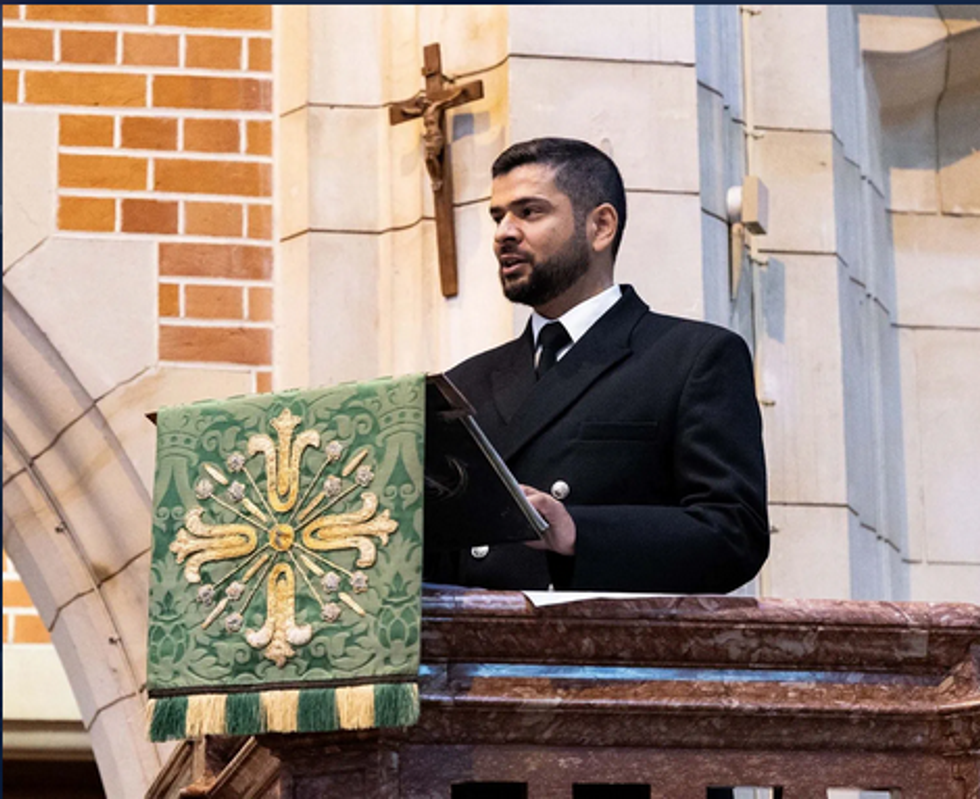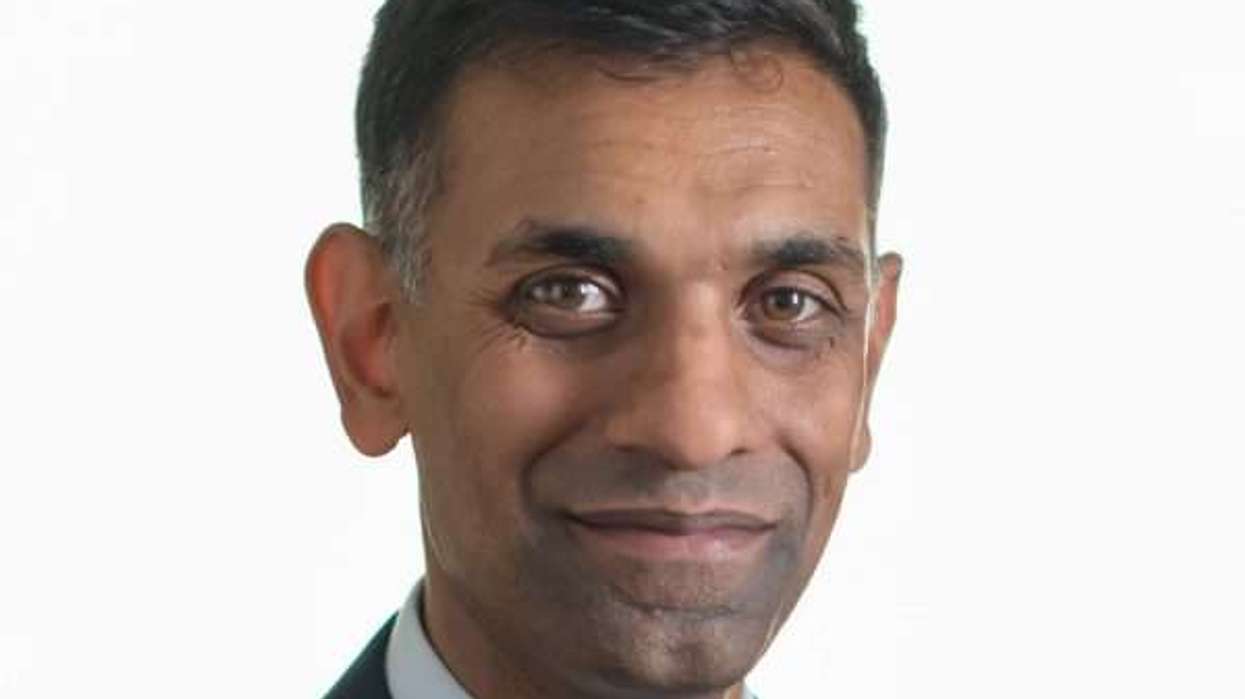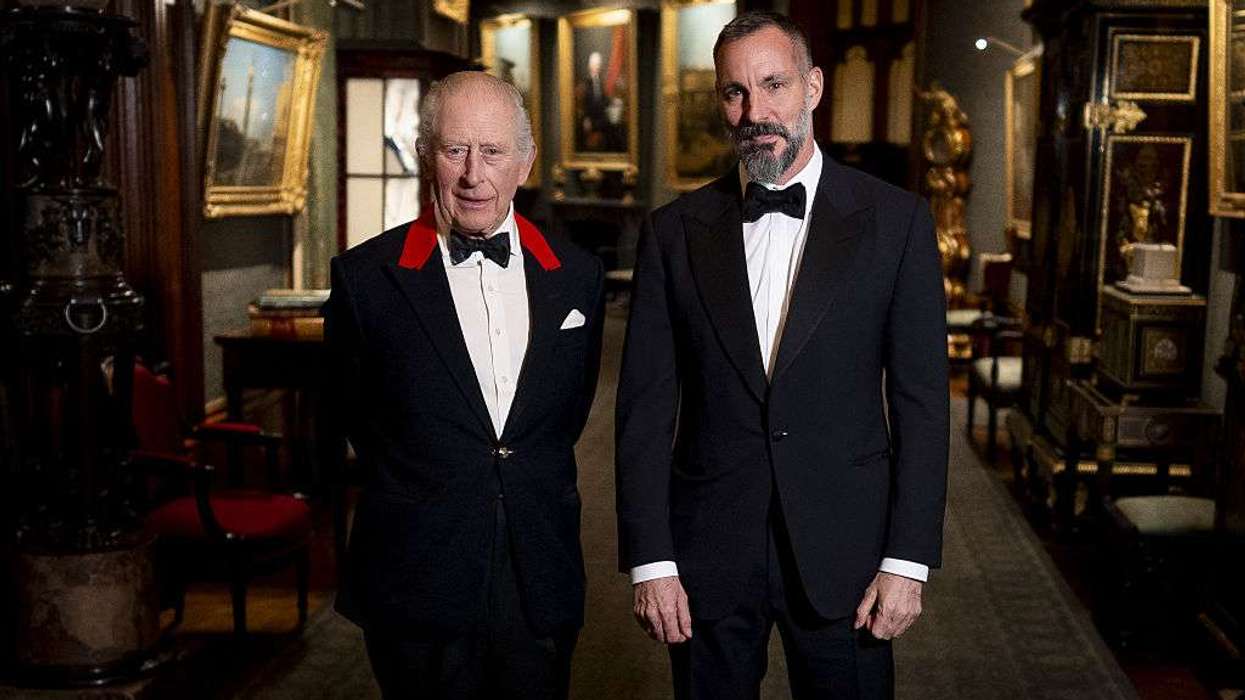AN ASIAN officer has spoken of his “profound honour” after he was appointed as the first-ever Hindu chaplain in the Royal Navy.
Bhanu Attri, originally from Himachal Pradesh in north India, took over his new role last week and will offer spiritual support to fellow naval officers, based on the tenets of Hinduism.
“As a Hindu brought up in India, the chance to represent individuals from other diverse religions brings meaningful representation for the Hindu community and reflects the Navy’s commitment to diversity, inclusion, and spiritual care for all,” said the 39-year-old.
“To become the first-ever Hindu chaplain in the fleet is a profound honour.
“My family feels immense pride, a pride grounded in generations of faith, service, and resilience,” he added.
Attri went through six weeks of officer instruction, including four weeks at sea aboard the warship HMS Iron Duke, and three weeks focused on the role of a military chaplain.
He was among 148 new officers among the so-called “leaders of tomorrow”, including warfare specialists, engineers, overseas and all cadets who joined from civilian life who completed their “Initial Officer Training” last week.
After up to 29 weeks of demanding instruction at Britannia Royal Naval College (BRNC) in Dartmouth, they transformed from civilian to sailor and formally passed out at a BRNC ceremony in front of friends, family and senior naval officers.
“We live in a perilous world and as a service we must respond to the challenges to our nation’s security, also with confidence – and that means we need people like you that can offer leadership of the highest quality,” said Andrew Burns, vice-admiral and the Royal Navy’s senior operational commander who was the guest of honour at the ceremony.
“There is no greater commitment than to serve your country, and to lead others to do the same,” he said.
The training is designed to teach the basics of serving in the military, such as drill and uniform, through the fundamentals of leadership, seafaring, naval history and strategy.

In addition to extensive time in the classroom and on the parade ground, cadets head out on to Dartmoor to learn and develop leadership and teamwork skills, spend time at sea aboard an operational warship, and conduct training on specialist Vahana boats on the River Dart and in the English Channel.
“Commissioning into the Royal Navy is a moment none of us forget, and it has been a privilege to follow these officers through their training. What awaits is a life of duty and frontline service,” said Captain Andy Bray, Captain Britannia Royal Naval College.




